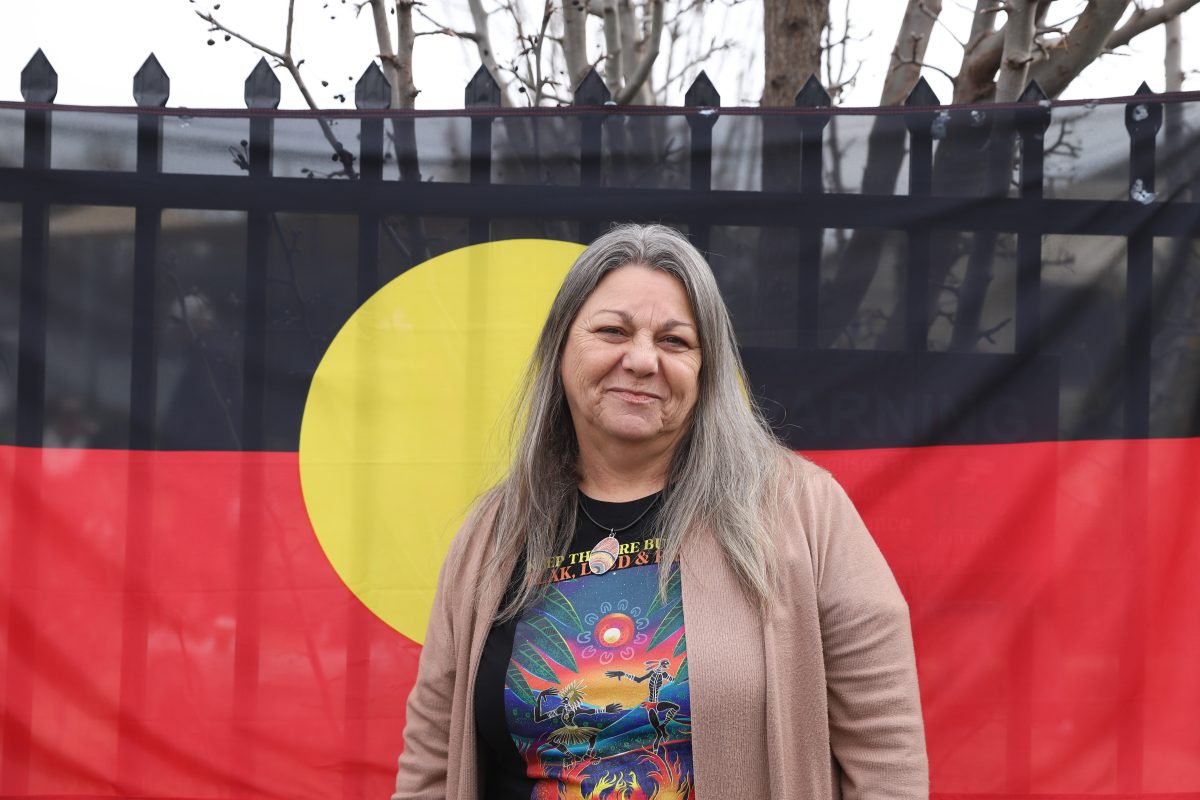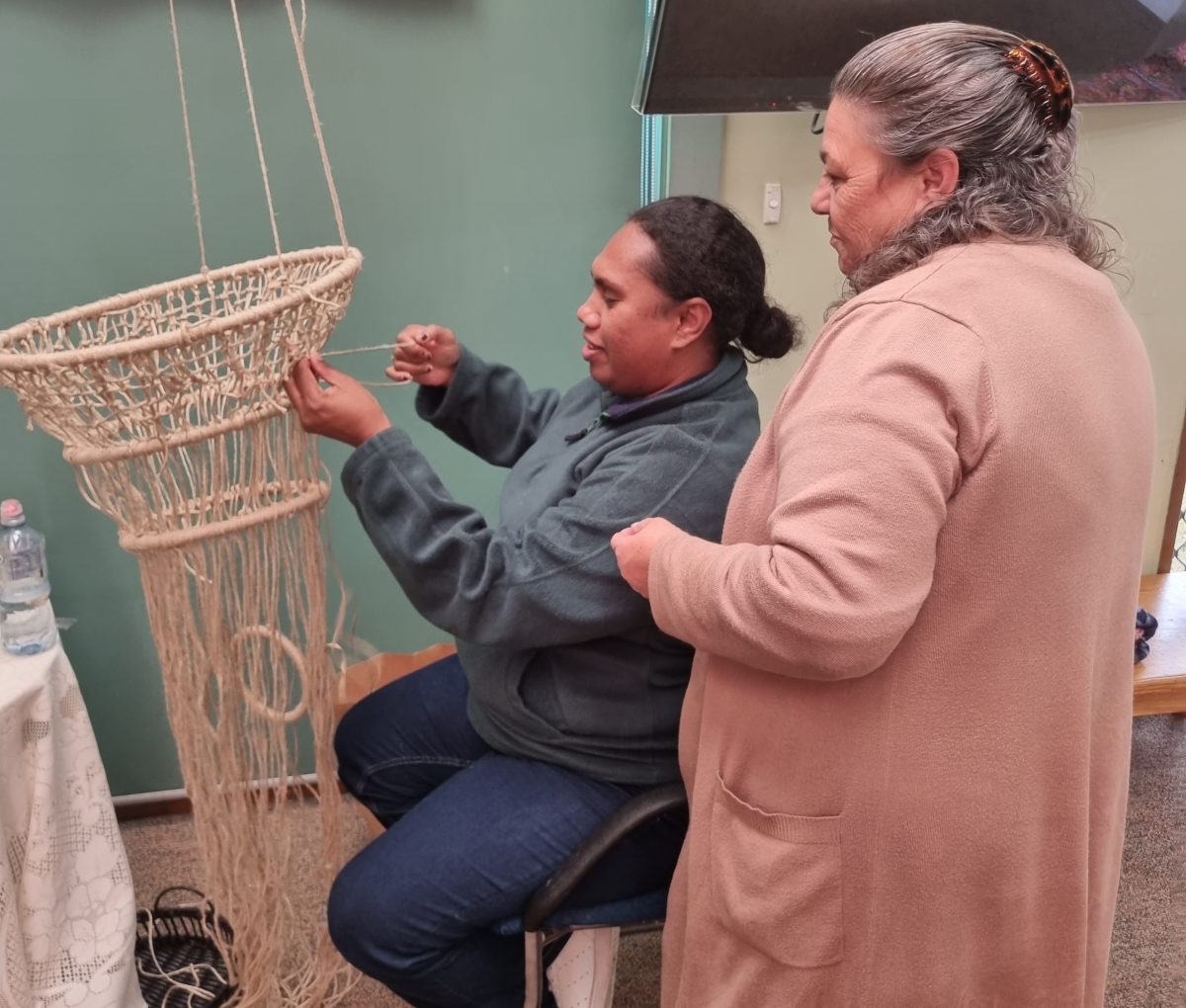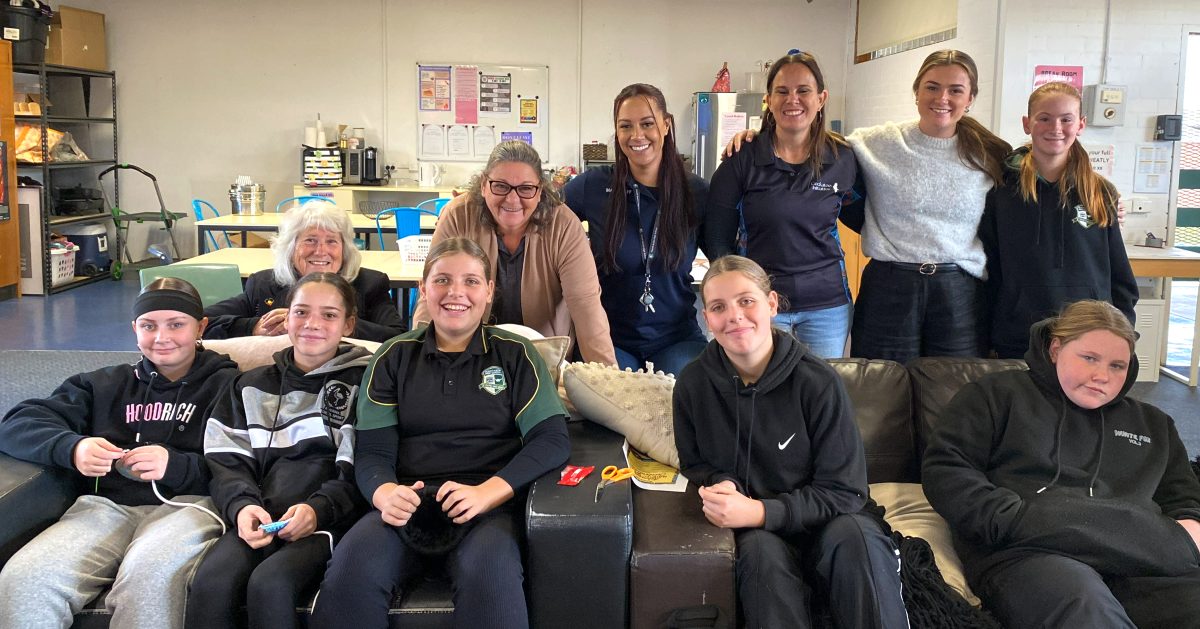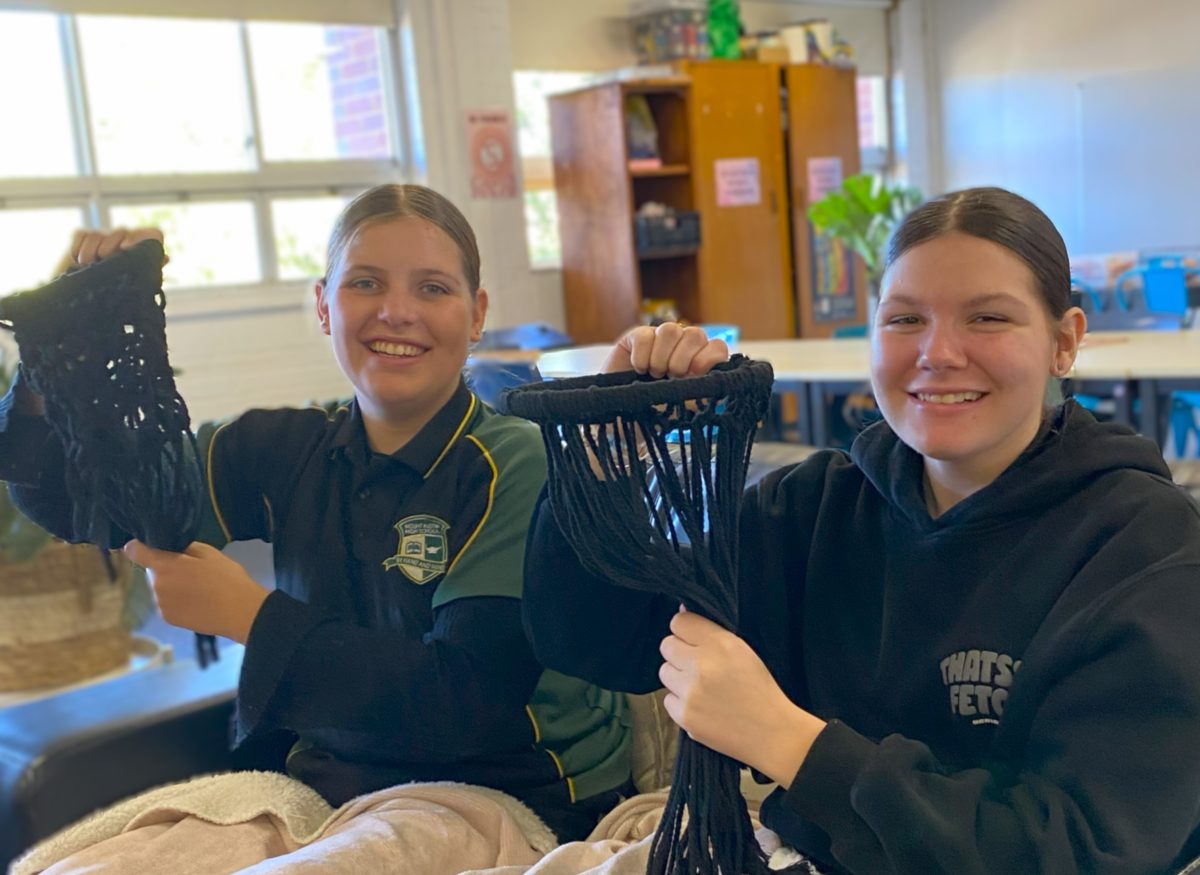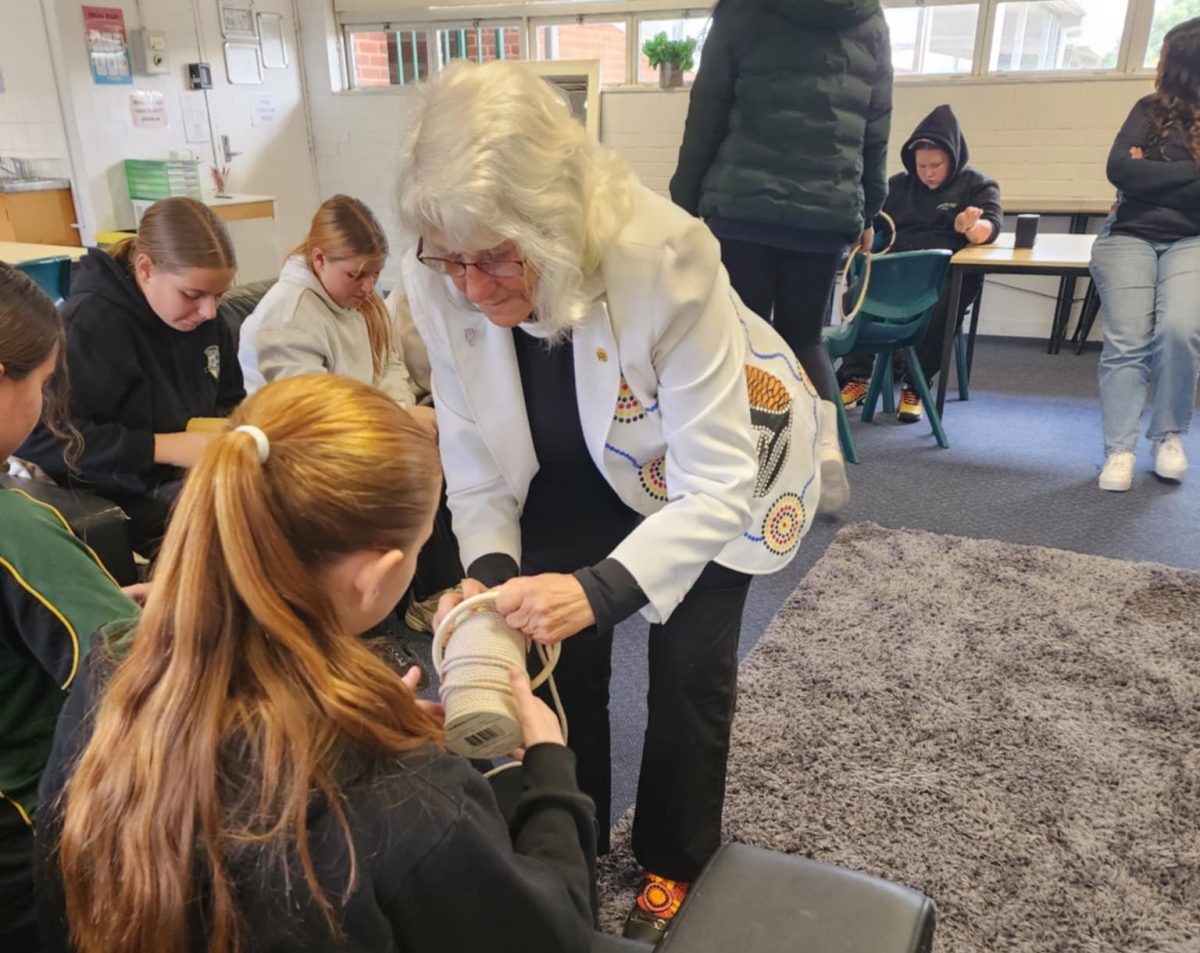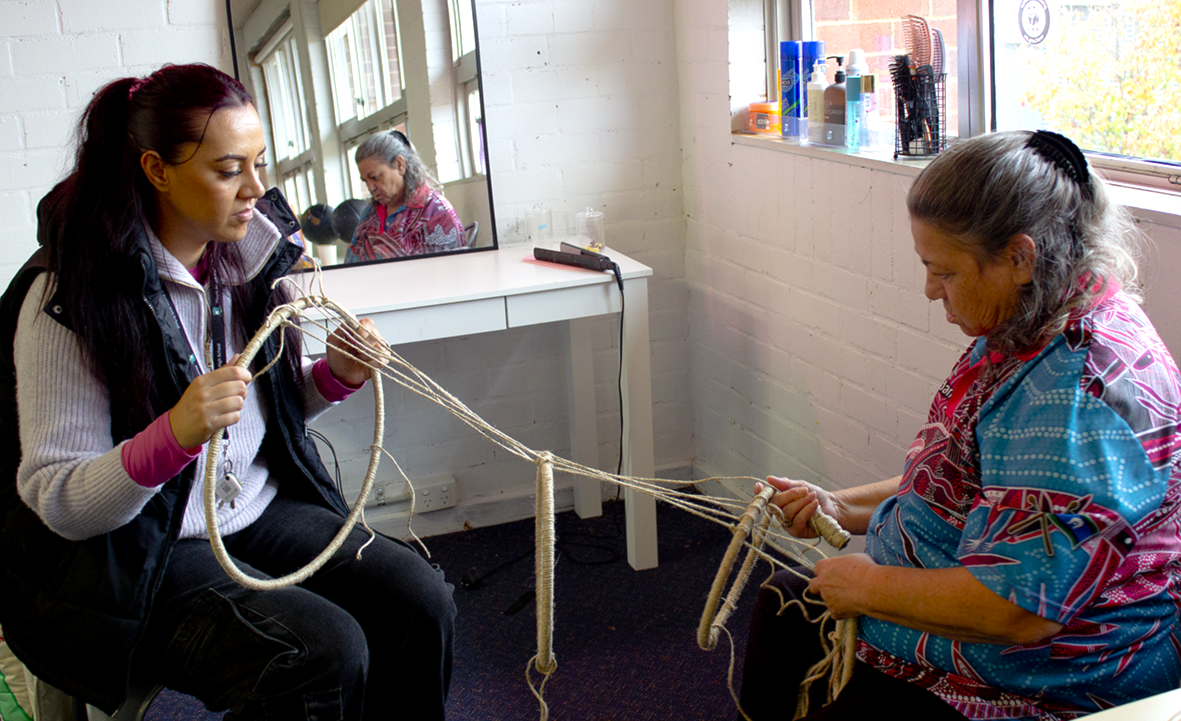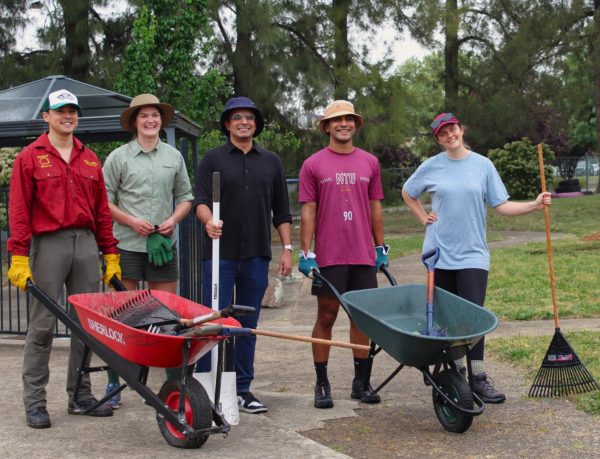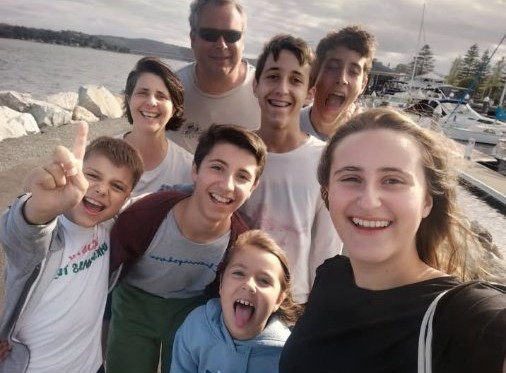Judy Solomon is well known in the Ashmont community. A proud Wiradjuri woman, mother of three, and Aboriginal Family Case Manager at Anglicare’s Ashmont Community Resource Centre (ACRC), Judy is a cornerstone of local support.
Currently, she works in Anglicare’s Lifetime Learning Program, an Indigenous family support service that walks alongside families as they focus on their children’s early development, wellbeing and school readiness.
By all accounts—from colleagues and families—Judy is a fabulous case manager. But her ACRC teammates insist that she is much more than her role.
“We are incredibly lucky to have Judy on the team”, said Samara Curtis, Anglicare Senior Manager Child, Youth & Family Services. “Her knowledge and understanding have been invaluable in ensuring the ACRC is culturally and community-centred. She does this as part of her everyday work, but her contribution outside of that—especially in helping organise our NAIDOC celebrations—goes well and truly beyond. We cannot thank her enough for what she does for us, and for this community.”
This year, while preparing for the ACRC NAIDOC Week event, Judy was inspired by the theme, The next Generation: Strength, Vision and Legacy.
“A brainstorm came to me”, she said. “For the youth of today to learn from our Elders. I thought of fishnets, as it was an old practice that our Elders use to do, and it was a dying craft.”
Judy spoke with long-time friend and Wiradjuri Elder, Auntie Joycelan, who was familiar with the craft of fishnet making. They then connected with a group at Mount Ashmont High School. Over the course of a term, young women from the Girls at the Centre group discovered a practice from their culture’s past, creating traditional fishnets like those used by their ancestors.
While participants were initially unsure of what they were doing or why, Auntie Joycelan provided insight into both the process and the practicality of the nets, explaining how they fit into local Aboriginal life.
“She also explained that one day they will be the elders, and that now they will be able to teach this technique to children in the future—so that our culture does not die”, said Judy.
Beyond learning about culture and gaining a new skill, the process provided the young women a sense of belonging.
“It was great to see the connections the girls built between themselves”, said Judy. “There was one girl that sat separately at the start, but by the end she was sitting with the rest of the girls on the lounge, weaving together.”
That sense of connection is exactly what Judy sees as the role of the ACRC in the Ashmont area—a place to weave the community together.
“There is no shame factor here”, said Judy. “We are people just trying to get by, in this life of ours”.
For Judy, ensuring that the ACRC is welcoming to all is about both practicality and pride.
“The centre is right in the middle of a high rate of Aboriginal people, we are in a low socio-economic area. We need our community to feel safe when coming to the centre and accepted when they walk through the doors.”
“I am proud to say I work with the best in the world. At the centre we are so connected to our community and that makes me feel proud of the work we do here. Connection is the key to moving forward.”
The finished fishnets were proudly displayed by their creators during the ACRC’s annual NAIDOC Week celebration and were met with appreciation and esteem by the entire community.
Visit the Ashmont Community Resource Centre page to learn more about this vital community hub.
